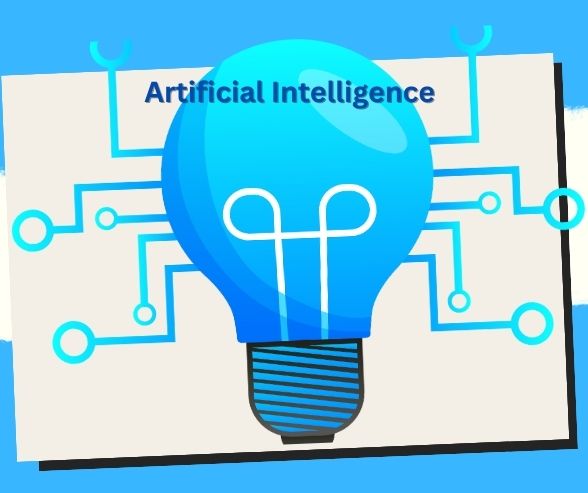
 Unmasking the Secrets of AI
Unmasking the Secrets of AI  : How to Address Bias and Ensure Fairness in Artificial Intelligence
: How to Address Bias and Ensure Fairness in Artificial Intelligence
Discover the impact of bias in AI and learn how to create fair and ethical algorithms in this comprehensive guide. 
Fairness and Bias in AI: Navigating the Shifting Landscape 

In our rapidly evolving digital landscape, Artificial Intelligence (AI) has emerged as a transformative force that shapes our daily lives. AI systems are being integrated into various sectors, from healthcare and finance to transportation and entertainment, promising efficiency, convenience, and progress. However, the rise of AI technology has also raised important questions about fairness and bias. As we delve into this critical topic, we’ll explore the implications, challenges, and promising solutions surrounding fairness and AI bias.
Understanding Fairness and Bias in AI 
What is Fairness in AI?
Fairness in AI revolves around the principle that AI systems should not discriminate against individuals or groups based on characteristics like race, gender, age, or any other protected attributes. AI algorithms should treat all individuals equitably and provide them with the same opportunities and outcomes.
Addressing Bias in AI
Bias in AI refers to systematic and unfair discrimination against certain groups or individuals due to flawed training data or biased algorithms. Bias can manifest in various forms, such as gender bias, racial bias, and socioeconomic bias. Identifying, understanding, and mitigating these biases is essential to ensure that AI systems remain ethical and equitable.
The Anatomy of Bias in AI 
Data Bias
Many AI biases are rooted in the data used to train these systems. If the training data is skewed in any way, the AI model will inevitably reflect those biases. For example, if a facial recognition system is predominantly trained on data from one demographic, it may perform poorly on individuals from other demographics.
Algorithmic Bias
Algorithmic bias can occur when the design and implementation of the AI model inadvertently lead to biased outcomes. The algorithm may amplify pre-existing inequalities even if the training data is relatively unbiased.
User Interaction Bias
Bias can also be introduced through user interactions. If an AI system is designed to adapt and learn from user behavior, it can inadvertently perpetuate and reinforce the users’ biases. For instance, a recommendation system that suggests content based on what users have historically engaged with can perpetuate their existing biases.
The High Stakes of AI Bias 
The consequences of AI bias are significant and far-reaching. These biases can lead to unjust outcomes, reinforcing discrimination and inequality, impacting people’s access to opportunities and resources, and exacerbating societal divisions.
Criminal Justice
AI algorithms are increasingly used in criminal justice systems for risk assessment and sentencing. Biased AI can result in disproportionately harsher sentences for certain demographics, perpetuating social inequalities and potentially leading to wrongful convictions.
Healthcare
In healthcare, biased AI can result in disparities in diagnosis and treatment recommendations. For example, an AI-driven diagnostic tool that disproportionately misdiagnoses certain racial groups can lead to delayed treatment and poorer health outcomes.
Employment and Finance
Bias in AI can affect hiring decisions and lending practices. If AI algorithms are biased against certain demographics, individuals may be unfairly denied job opportunities or loans.
Navigating the Path to Fair AI 

Addressing fairness and bias in AI is a complex and evolving journey. While there is no one-size-fits-all solution, strategies and techniques can be employed to navigate this path more successfully.
1. Diverse and Representative Training Data
The foundation of fair AI starts with the data. Collecting diverse and representative datasets is critical. This means ensuring that data sources reflect a wide range of demographics and backgrounds to avoid introducing bias from the outset.
2. Rigorous Testing and Evaluation
It’s crucial to thoroughly test and evaluate AI systems for bias. This involves monitoring their performance across different demographic groups and identifying and addressing any disparities.
3. Ongoing Monitoring and Feedback Loops
AI models are not static. They evolve with new data and user interactions. Establishing continuous monitoring and feedback loops is essential to detect and correct emerging bias.
4. Transparency and Accountability
Developers and organizations should be transparent about the AI systems they deploy. This includes disclosing how they make decisions and being accountable for addressing bias issues promptly.
5. Diverse Development Teams
Diverse development teams can offer valuable perspectives and insights that help identify and mitigate biases. A wide range of voices in the design and development process can lead to more inclusive AI.
AI for Good: Promising Initiatives 

In the quest for fair AI, inspiring initiatives and organizations strive to make a positive impact.
AI Ethics Guidelines
Many organizations and institutions have developed AI ethics guidelines, encouraging responsible AI development and use. These guidelines outline fairness, transparency, and accountability principles in AI systems.
Fairness Tools and Frameworks
Various fairness tools and frameworks are available to help developers and researchers evaluate and mitigate bias in AI systems. These tools can be instrumental in identifying and addressing bias.
Bias Mitigation Research
Researchers worldwide are actively investigating bias mitigation techniques and sharing their findings. Their work fuels progress in creating AI systems that are more equitable.
Looking Ahead: The Future of Fair AI 
The journey to fairness and bias mitigation in AI is ongoing. While challenges persist, technological advancements and a growing awareness of these issues drive the industry toward a more equitable future.
AI Regulations
Countries and regions are beginning to enact regulations to govern AI systems, emphasizing the need for transparency, fairness, and accountability. These regulations aim to set standards for the responsible development and use of AI.
Advancements in AI Ethics Research
The field of AI ethics is rapidly evolving. Researchers and ethicists are exploring novel techniques and frameworks to effectively address fairness and bias issues.
Increased Collaboration
Stakeholders from all sectors recognize collaboration’s importance in addressing AI bias. Governments, businesses, researchers, and advocacy groups work together to develop solutions.
Public Awareness and Engagement
Public awareness of AI bias is growing, and individuals increasingly demand transparency and fairness in AI systems. This collective awareness and engagement are critical for driving change.
Conclusion: The Quest for Ethical AI Continues 
In the ever-evolving landscape of AI, fairness and bias remain central concerns. The quest for ethical AI systems is a dynamic journey that requires vigilance, adaptability, and a commitment to the principles of fairness, transparency, and accountability. By working together and harnessing the power of technology for good, we can pave the way for AI that empowers and uplifts all of humanity.
As we navigate this intricate path, let us keep the torch of fairness and bias mitigation in AI burning bright, ensuring that future technology serves as a beacon of equity and inclusivity.
Related Queries
Addressing Bias in AI Algorithms
Promoting Fairness in Machine Learning
Ethical AI Practices
AI Bias Impact on Society
Strategies for AI Fairness
Creating Inclusive Machine Learning
Bias Elimination in Artificial Intelligence
Ensuring Equity in AI Systems
Future of Fair AI
Decoding AI Bias and Fairness
Save/Share this story with QR CODE
Disclaimer
This article is for informational purposes only and does not constitute endorsement of any specific technologies or methodologies and financial advice or endorsement of any specific products or services.
 Need to get in touch?
Need to get in touch?

We appreciate your reading. 
1.) 

Your DONATION will be used to fund and maintain NEXTGENDAY.com
Subscribers in the Philippines can make donations to mobile number 0917 906 3081, thru GCash.
3.) 
4.) 
AFFILIATE PARTNERS

World Class Nutritional Supplements - Buy Highest Quality Products, Purest Most Healthy Ingredients, Direct to your Door! Up to 90% OFF.
Join LiveGood Today - A company created to satisfy the world's most demanding leaders and entrepreneurs, with the best compensation plan today.












 Detecting Algorithmic Bias: Tools and Strategies for Transparency
Detecting Algorithmic Bias: Tools and Strategies for Transparency 





 Witness the AI revolution firsthand – discover how artificial […]
Witness the AI revolution firsthand – discover how artificial […]